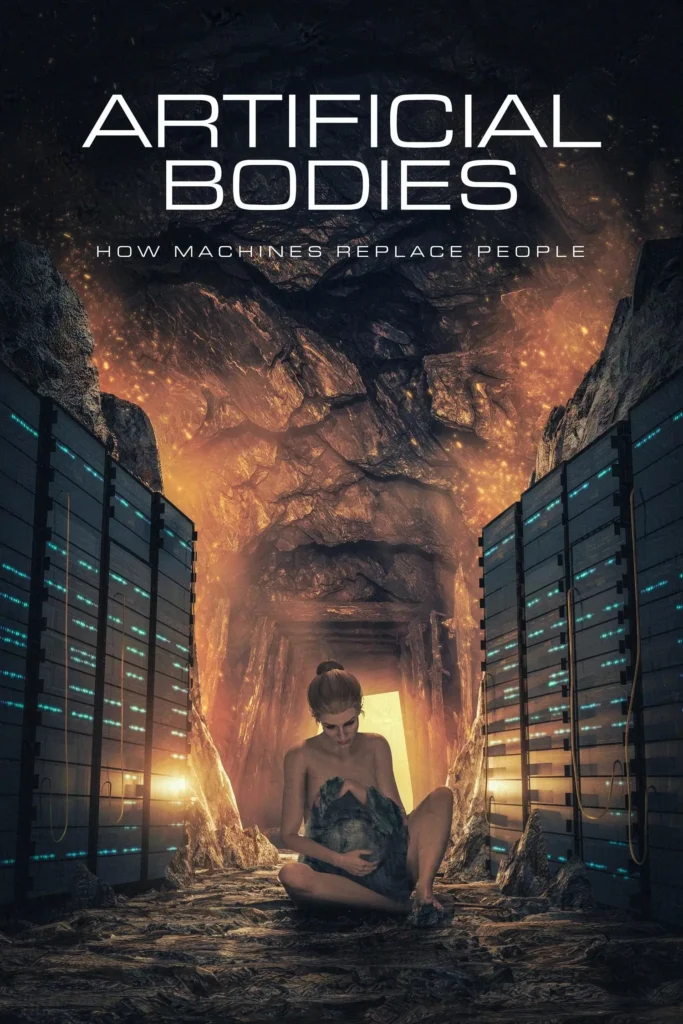
Remmelt Ellen’s Artificial Bodies is a fascinating book that talks about how artificial intelligence (AI), big companies, and humanity’s future are all connected. The book is both a warning and a guide, showing us what might go wrong if we’re not careful with technology. It’s written in a way that makes you think deeply about the world we live in.
Reading Artificial Bodies was eye-opening. Ellen’s idea of companies as artificial bodies made me think differently about how businesses and machines work together. The book’s focus on the environment stood out to me. I didn’t realize how much energy data centers use or how much pollution hardware creates. It made me think about the hidden costs of technology.
Some parts of the book, like the idea of machines taking over completely, felt a bit far-fetched. But Ellen’s arguments were strong enough to make me consider how real these risks might become if we don’t act now.
What the Book Is About

Artificial Bodies focuses on the rapid growth of AI and how big companies are using it. Ellen explains how AI is changing everything—from the way we work to the health of our planet. He uses stories, history, and real examples to show how dangerous it can be when companies only care about making money. The book also imagines what the future could look like if machines take over more of our lives.
Main Ideas in the Book
Artificial Bodies:
Ellen talks about how companies act like artificial bodies. Just like machines, companies grow by replacing humans with robots and AI. This makes them stronger but leaves people behind. He explains how this trend is making humans less important in the workplace.
Losing Jobs:
The book shows how AI and automation are taking away jobs. Creative workers like artists and writers, as well as factory workers, are being replaced by machines. Ellen warns that if this continues, people will lose their value in society.
Harming the Planet:
Ellen highlights the environmental damage caused by AI. Data centers use huge amounts of energy, and making hardware pollutes the Earth. He explains how this is creating a cycle of harm that threatens the planet’s future.
Big Companies and Power:
The book explores how big tech companies divide people and control the narrative. Ellen criticizes these corporations for using tricks to stay in power while avoiding proper regulations, much like tobacco and oil companies did in the past.
Writing Style and Impact
Ellen writes in a way that mixes storytelling with facts. He uses simple examples and clear ideas, making complex topics easier to understand. The book feels like a conversation, inviting readers to think about their own role in shaping the future of technology. At times, the book reads like a science fiction story, showing possible futures that feel both scary and real.
One of the book’s strengths is its urgent tone. Ellen doesn’t just talk about problems; he encourages readers to take action. He shares practical ideas, like supporting laws to protect data and joining movements to stop harmful automation.
Final Thoughts
Artificial Bodies is a must-read for anyone interested in technology and its impact on our lives. It challenges us to think about the role of AI and big companies, and it gives us ideas for how to push back. Ellen’s message is clear: we need to take control of technology before it controls us.
Whether you’re a tech fan, a policymaker, or just someone worried about the future, this book will leave you with plenty to think about. It’s not just about AI—it’s about what it means to stay human in a world that’s becoming more artificial.


